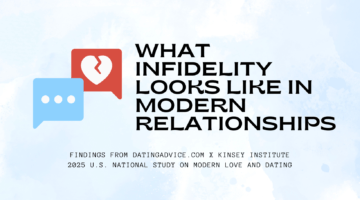The Types of People Most—and Least—Likely to “Ghost” a Relationship Partner
July 22, 2020 by Justin Lehmiller
There are lots of ways to end a romantic relationship, but some people choose to “ghost” their former partner. Ghosting is defined as “ending a romantic relationship by cutting off all contact and ignoring the former partner’s attempts to reach out” [1]. In other words, they basically just disappear, never to be heard from again.
If you’ve ever been ghosted, you probably know how much it can hurt. And it can sometimes hurt even more than other types of break-ups because there’s so much ambiguity and uncertainty about it. It can also lead to a lot of self-blame: “What did I do wrong?”
However, getting ghosted probably doesn’t say as much about you as it says about your former partner. Research has found that certain types of people are more likely to engage in ghosting than others.
In a recent set of studies published in the Journal of Social and Personal Relationships, researchers sought to better understand who tends to ghost and why—and what they found is that ghosting is linked to our implicit theories about relationships, or the beliefs we have about what makes for a good romantic relationship [2].
There are really two main types of implicit theories: destiny beliefs and growth beliefs. Destiny beliefs center around the idea that relationships are either meant to be, or they aren’t. People with strong destiny beliefs tend to think that when you meet the right person, everything will just work out easily. Conflict and relationship problems are taken as signs that it’s just not the right relationship. The result is that high destiny beliefs are linked to ending relationships sooner.
On the other hand, growth beliefs center around the idea that relationships can grow and change over time. People with strong growth beliefs tend to think that relationships require work in order to succeed and they see problems as something that can be overcome—and something that can make a relationship even stronger in the end. Growth beliefs are linked to having longer-lasting relationships.
In the first study, researchers surveyed 554 adults online about their implicit theories of relationships, as well as their views on ghosting—how they feel about it, whether it’s something they intend to do in the future, and whether they’ve ever experienced it before (either as the ghoster or the ghostee).
About 1 in 4 participants said they’d been ghosted before, while about 1 in 5 said they had ghosted someone.
The researchers found that people with more destiny beliefs (1) felt that ghosting was a more socially acceptable behavior, (2) they were more likely to say they’d do it in the future, and (3) they were more likely to have actually ghosted someone before.
On the other hand, those with more growth beliefs tended to think that ghosting was a less acceptable behavior.
In the second survey, they studied 747 adults online in order to replicate these effects—and also to see if the same results apply to ghosting in the case of friendships.
Similar numbers of people reported experiences with romantic ghosting in this study as compared to the first; however, people were even more likely to say that ghosting had occurred in their friendships.
Replicating the first study, the same general trends were again found with regard to how destiny and growth beliefs were linked to ghosting in romantic relationships; those with destiny beliefs were more approving of and more experienced with ghosting, while those with growth beliefs were less comfortable with the idea.
The pattern was a little different for friendships, with neither destiny nor growth beliefs linked to actual experiences with ghosting a friend. However, that may be due to the fact that, in general, people tended to think ghosting was a more acceptable way to end a friendship than it was a romance, so that form of ghosting doesn’t seem to say as much about someone’s underlying beliefs.
While neither of these studies involved representative samples and they don’t consider all possible reasons that someone might engage in ghosting, they do tell us a few important things.
First, ghosting seems to be a fairly common way that people end relationships. Sometimes people just up and disappear, never to be heard from again.
Second, they tell us that certain types of people are more likely to ghost than others, and that our implicit beliefs about relationships seem to be an important predictor of this behavior. Specifically, people who tend to believe in the idea of “soulmates” (i.e., those with more destiny beliefs) are more inclined to ghost than those who take a growth mindset when it comes to love.
Want to learn more about Sex and Psychology? Click here for previous articles or follow the blog on Facebook (facebook.com/psychologyofsex), Twitter (@JustinLehmiller), or Reddit (reddit.com/r/psychologyofsex) to receive updates. You can also follow Dr. Lehmiller on YouTube and Instagram.
[1] Safronova, V. (2015). Exes explain ghosting, the ultimate silent treatment. The New York Times.
[2] Freedman, G., Powell, D. N., Le, B., & Williams, K. D. (2019). Ghosting and destiny: Implicit theories of relationships predict beliefs about ghosting. Journal of Social and Personal Relationships, 36(3), 905-924.
Image Source: 123RF/Karen Roach
You Might Also Like:

Dr. Justin Lehmiller
Founder & Owner of Sex and PsychologyDr. Justin Lehmiller is a social psychologist and Research Fellow at The Kinsey Institute. He runs the Sex and Psychology blog and podcast and is author of the popular book Tell Me What You Want. Dr. Lehmiller is an award-winning educator, and a prolific researcher who has published more than 50 academic works.
Read full bio >


